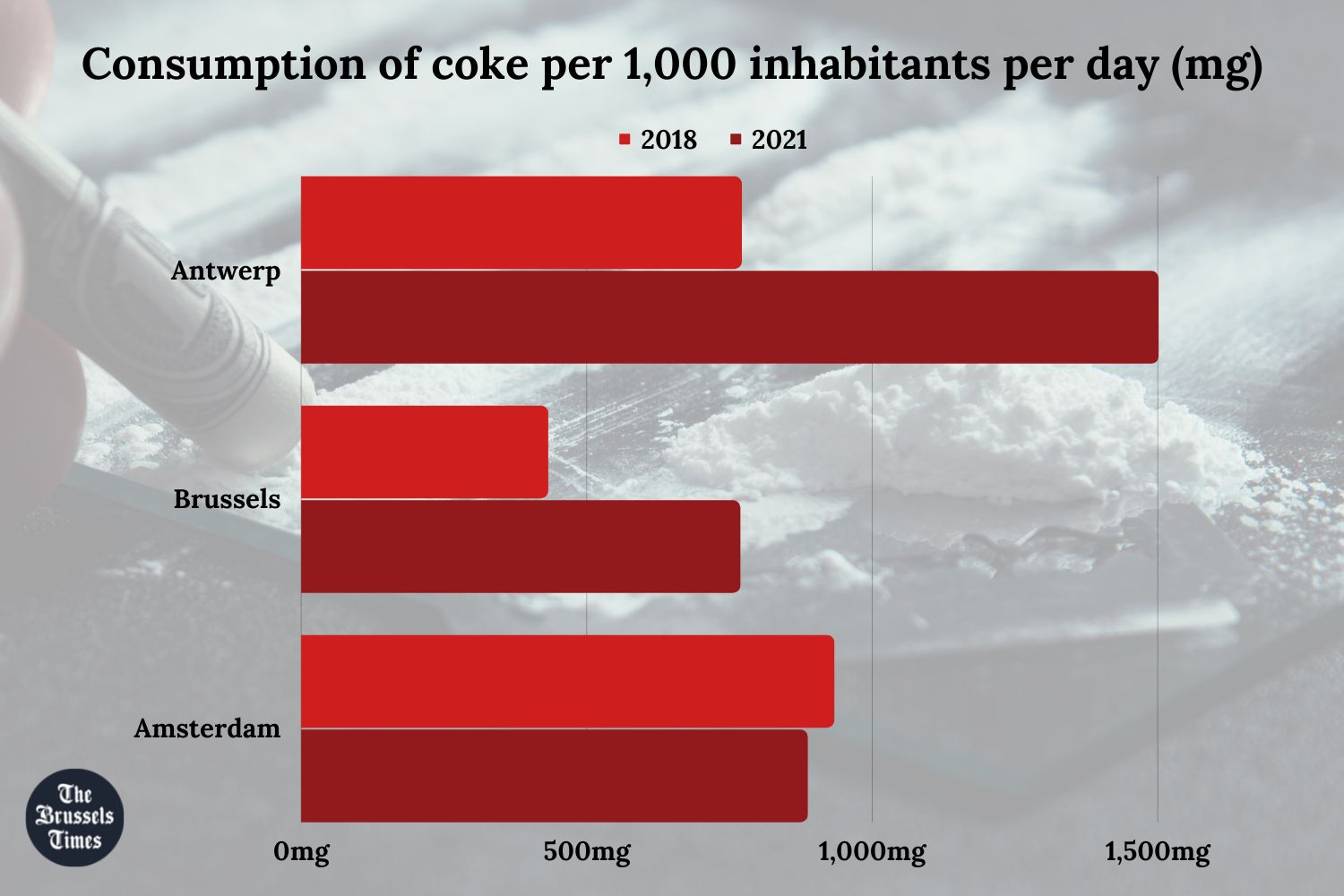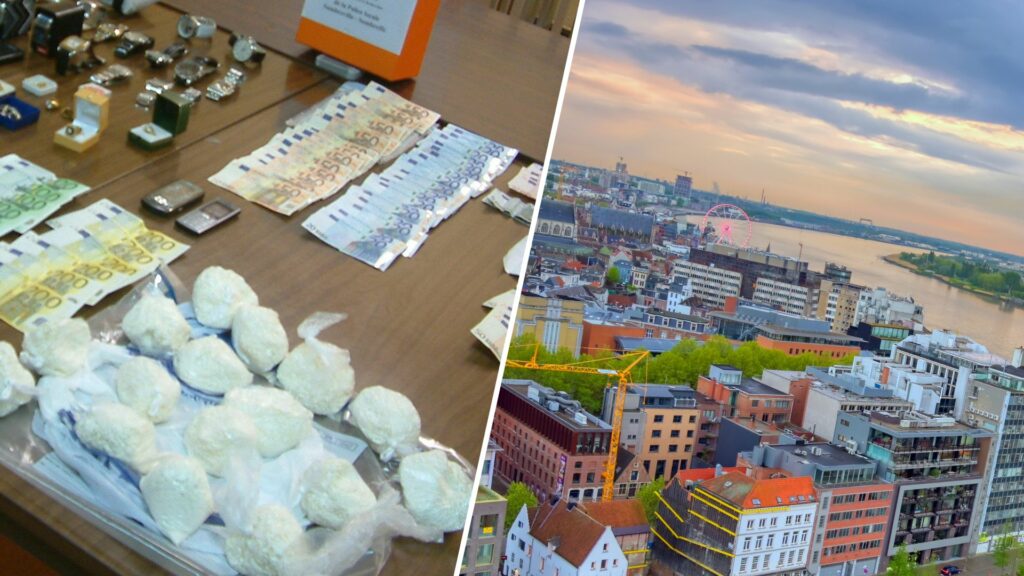21.5 million people used cocaine at least once in 2020 – a 32% rise in the past ten years according to the 2022 UN Drug Report. In Antwerp, cocaine use has more than doubled since 2018, which is little surprise given the explosion of incidents related to the highly valuable Class A substance that has fuelled drug wars in the city.
While recent figures for cocaine use in Belgium are harder to pinpoint, it is known that almost 110 tonnes was intercepted at the port of Antwerp in 2022. This is more than double the amount intercepted in 2018.

Between 2019 and 2021, Antwerp doubled in cocaine consumption, surpassing Amsterdam.
Het Laatste Nieuws spoke to users of the drug and were told that the supply has greatly increased. One user explained that they send a WhatsApp message to the dealer and sometimes within twenty minutes, their delivery arrives at their doorstep. With the market saturated, the street price of the drug has also resisted inflation and remained somewhat stagnant at €50 for a gram.
Contaminants
With the business expanding so rapidly, many criminals have been eager to cash in on the drug. But this has seen the quality of cocaine fall as dealers add anthelmintics, lidocaine, flour, garlic powder or even ground-up glass – presenting a threat to the lives of users. Some users tell of difficulties getting the full gram and recount that instead they often receive between 0.6 and 0.9 grams.
Het Laatste Nieuws said that cocaine is in every part of the Belgian population. Katleen Peleman, director of the Flemish Centre for Alcohol and Drugs (VAD), said that the increase is most marked among young men. But she added that it is also prevalent among those in occupations with strong performance pressure.
"Think lawyers, self-employed professionals, but also medical specialists and people in the construction or catering industry." There was also a shift to weekly use by those who used cocaine for long periods over the weekends.
Related News
- Destroying drugs: Capacity to burn up to 20 tonnes of cocaine per week
- Fines for using hard drugs could increase from €150 to €1,000
Cocaine use can also be estimated by measuring residues secreted by users in sewage water. In this way, the European drugs report showed a remarkable increase in Antwerp and Brussels.
Peleman stated that, for the first time, the Flemish centre of expertise has started preparing a prevention project focusing on cocaine use – she believes the first of its kind. In the Netherlands, a general prevention policy on illegal drugs has been chosen over one devoted solely to cocaine.

